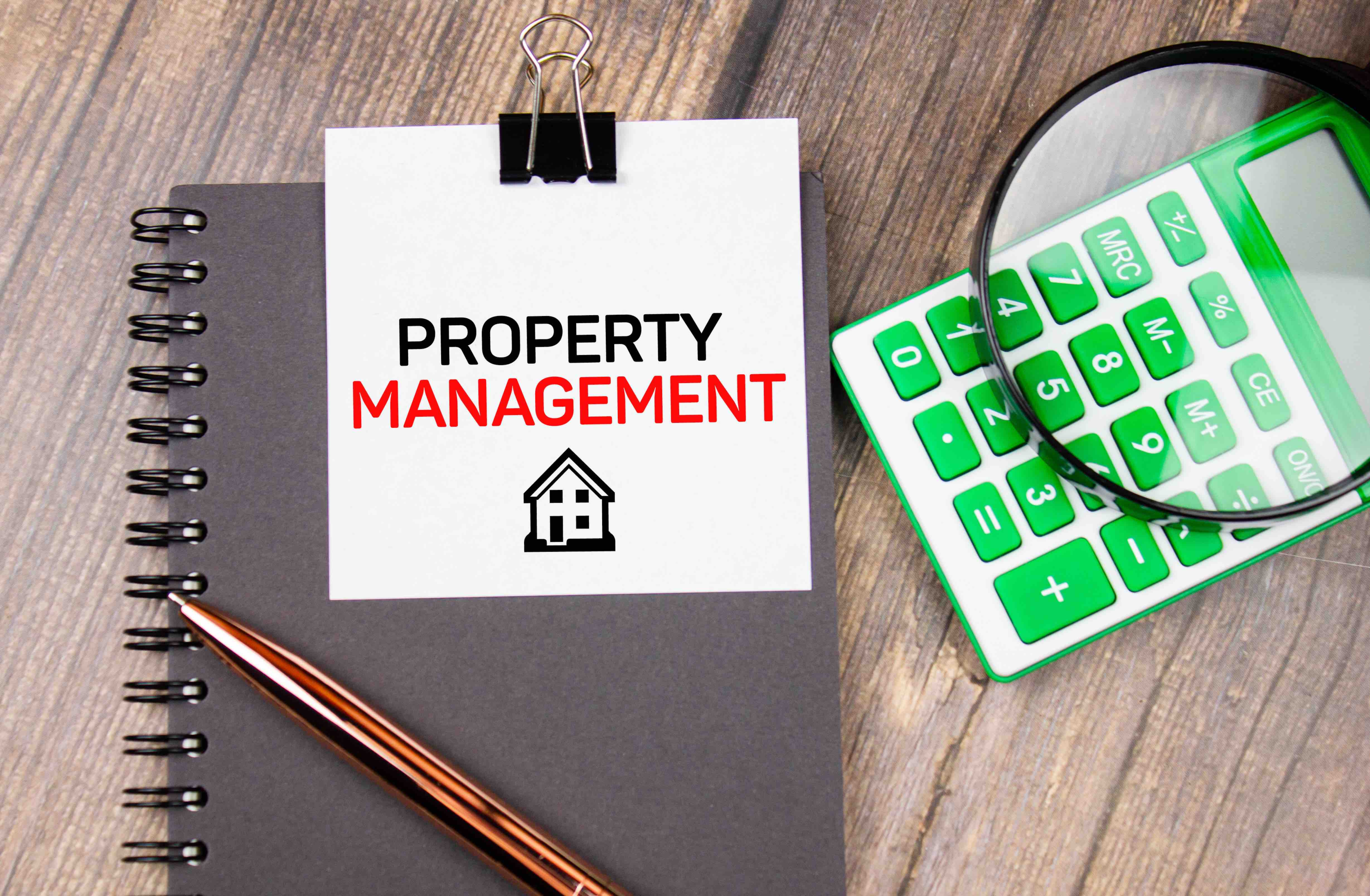
Property management fees can be a complex topic for property owners, but understanding the various fees and factors that influence them, including how much do property managers charge, can save you time and money. In this blog post, we will demystify property management fees, explore the factors that can impact these costs, and discuss the benefits of hiring a property manager. Armed with this knowledge, you’ll be better equipped to make an informed decision when choosing the right property management company for your needs, keeping in mind the question of how much do property managers charge.
Short Summary
- Understanding property management fees, which can vary based on services and rental properties.
- Factors influencing costs include type/size of property, location and condition.
- Benefits include time savings, increased income & legal compliance. Research reviews to find the best fit for your needs & budget.
Suggested Posts:
Managing Rental Properties: A Comprehensive Guide
The Future of Real Estate: How Proptech is Revolutionizing the Industry
Best Property Management Chatbots in 2023
Understanding Property Management Fees
Navigating the world of property management fees can be overwhelming, especially with the multitude of services and fee structures available. To help you gain a clearer understanding, let’s break down the different types of fees that property managers may charge.
These include monthly management fees, tenant placement fees, and additional fees.
Monthly Management Fee
Monthly management fees are a crucial part of any property management agreement. These fees can be structured in two ways: as a percentage of the rent collected or as a flat fee. The percentage-based fee structure is more common, with most property management companies charging between 8% and 12% of the monthly rent collected.
On the other hand, a flat fee is a fixed amount that doesn’t change, regardless of the rent collected. When choosing between these two fee structures, it’s essential to consider your rental property and the amount of rent you collect. A percentage-based fee might be more suitable for properties with fluctuating rental income, while a flat fee might be more appealing for properties with stable rental income.
Additionally, residential property managers may offer discounted fees for managing multiple properties or for vacant properties, where they perform tasks such as weekly inspections to check for potential break-ins or squatters.
Tenant Placement Fee
Tenant placement fees are another critical component of property management fees. These fees cover the costs of advertising, screening, and securing tenants for a rental property. Tenant placement fees are typically charged as a percentage of the first month’s rent or as a flat fee, with costs ranging from 25% to 75% of the first month’s rent or a flat fee.
It’s important to note that some property managers may offer a refund for tenant placement fees under certain circumstances, such as if the tenant breaks their lease or faces eviction. This refund policy incentivizes property managers to carry out a thorough tenant screening process, which should result in a lower turnover rate in the future.
Additional Fees
In addition to the monthly management and tenant placement fees, property managers charge additional fees for various services. These can include:
- Setup fees
- Lease renewal fee
- Maintenance fees
- Eviction fees
- Contract termination fees
For example, a project management fee might be charged if the property manager oversees significant renovations, typically amounting to 10% of the project value.
It’s essential to carefully review these additional fees when evaluating property management companies, as they can significantly impact your overall property management costs. Make sure to discuss these fees with potential property managers and understand what services are included, so you can make an informed decision on which company best suits your needs.
Factors Influencing Property Management Costs

Now that we’ve covered the various fees property managers may charge, let’s explore the factors that can influence property management costs. These factors include:
- The type of property
- Size
- Location
- Condition
By understanding how these factors impact property management fees, you can better assess whether a property management company’s fees are reasonable for your specific property.
Property Type and Size
Property management fees may vary depending on the type and size of the property. For example, commercial properties typically incur higher property management fees than residential properties, with fees ranging from 4-12% of the property’s total rent. Additionally, the size, quantity, and type of a property can all contribute to the property management fee.
This means that managing a large apartment complex with multiple units may result in higher fees than managing a single-family home. It’s essential to consider the specific needs of your property, the number of units, tenants, and square footage when evaluating property management fees.
Location
Location can play a significant role in property management fees. Properties in different areas may require different levels of services, impacting the overall cost of property management. Furthermore, in markets with fewer property management companies, fees may be higher compared to those with more competition.
When evaluating property management companies, it’s crucial to consider the local rental market and the specific needs of your property. The fees charged in one area may not reflect the fees charged in another area, so it’s essential to research and compare companies within your property’s location.
Condition of Property
The condition of a property can also affect property management fees. Older properties may require more maintenance and upkeep, which can lead to higher fees. Additionally, the amount of maintenance and repairs needed can directly impact property management costs due to the extra work required by the property manager.
When evaluating property management companies, it’s essential to be upfront about the condition of your property and any ongoing maintenance needs. This will help ensure that you find a property management company that can adequately address your property’s needs and accurately estimate the fees associated with managing it.
Benefits of Hiring a Property Manager

Now that we’ve explored property management fees and factors that can influence them, let’s discuss the benefits of hiring a property manager. Engaging a property manager can result in considerable time savings, optimization of rental income, and adherence to legal regulations.
Understanding these benefits can help you weigh the pros and cons of hiring a property manager and make an informed decision on whether it’s worth the investment for your rental property.
Time Savings
One of the most significant benefits of hiring a property manager is the time savings. Property managers can take care of tasks such as:
- Advertising
- Tenant screening
- Lease agreements
- Maintenance requests
This allows you to focus on other aspects of your life. Additionally, property managers can assist with tenant issues, responding quickly to inquiries and managing daily operations.
Property managers can also effectively manage maintenance by arranging repairs, liaising with contractors, and ensuring the property is in optimal condition. By handling these tasks, property managers save landlords valuable time and energy, making the investment in property management services well worth it.
Maximizing Rental Income
Another significant benefit of hiring a property manager is maximizing rental income. Property managers can help ensure efficient tenant management by conducting tenant screenings, collecting rent payments, and addressing tenant disputes. In addition, they can help reduce vacancy rates by implementing effective marketing strategies, pricing rentals competitively, and responding promptly to tenant inquiries.
By efficiently managing tenants and reducing vacancy rates, property managers can help landlords get the most out of their rental income. This can be especially beneficial for property owners who may not have the time or expertise to manage their rental properties effectively.
Legal and Regulatory Compliance
Lastly, property managers provide the following benefits to landlords:
- They are knowledgeable about local laws and regulations, ensuring compliance and reducing legal risks.
- They stay informed of any modifications or updates to laws related to property management.
- They ensure the property is in accordance with the FHAA standards.
- They assist with rent collection and adjust rent prices based on the current market, area trends, and other relevant factors.
By ensuring legal and regulatory compliance, property managers can help landlords avoid potential legal issues and penalties, providing peace of mind and a more secure investment. This benefit alone can justify the cost of hiring a property manager for many property owners.
How to Choose the Right Property Management Company

Choosing the right property management company is a critical decision for any property owner. With so many factors to consider, from fees to services and everything in between, it’s essential to approach the selection process with a clear strategy.
In this section, we’ll discuss how to conduct research, compare fees and services, and negotiate for the best deal when choosing the right property management company for your needs.
Research and Reviews
Conducting thorough research and reading reviews is a crucial step in finding a reputable property management company. Here are some steps to follow.
- Gather referrals from friends, family, or other property owners who have had positive experiences with property management companies.
- Investigate online reviews and ratings.
- Inspect their properties to see the condition and maintenance level.
- Interview personnel to gain a better understanding of their customer service, responsiveness, and overall professionalism.
By following these steps, you can find a property management company that meets your needs and expectations.
When evaluating reviews, consider feedback from both tenants and landlords and pay attention to any concerns that have been raised. By researching and reading reviews, you can gain valuable insights into a property management company’s reputation and make a more informed decision about whether they are the right fit for your needs.
Compare Fees and Services
Once you’ve conducted your research and narrowed down potential property management companies, it’s essential to compare the fees and services they offer. Consider the following:
- Monthly management fee
- Tenant placement fee
- Lease renewal fees
- Maintenance fees
- Services included in each fee, such as property inspection, maintenance, emergency maintenance handling, and rent collection.
Comparing fees and services can help you determine which property management company offers the best value for your needs and budget. Be sure to ask questions about any additional or hidden fees and understand the scope of the services included in each fee to avoid surprises down the line.
Negotiation and Flexibility
Negotiating with property management companies can be an effective way to remove unnecessary services, set limits on maintenance costs, and potentially save money. When engaging in negotiations, it’s essential to remain curious and maintain clear communication with a mutually beneficial outcome in mind. This will help ensure that both parties are satisfied with the results of the negotiation.
Some elements of the monthly property management fee may be open to negotiation, such as maintenance services and associated costs for materials and labor. By being flexible and willing to compromise, you can strike a deal that meets your needs without breaking the bank.
Summary
In conclusion, understanding property management fees and the factors that influence them is critical for property owners looking to maximize their investment. By evaluating different fee structures, considering the size, type, and location of your property, and weighing the benefits of hiring a property manager, you can make an informed decision about whether property management services are right for you. Remember to conduct thorough research, compare fees and services, and negotiate for the best deal when choosing the right property management company. With the right property manager by your side, you can enjoy a more lucrative and hassle-free rental property experience.
Frequently Asked Questions
What is the most common payment for a property manager?
The most common payment for a property manager is a monthly fee of 8-12% of the monthly rent collected. For example, if the rent on your home is $1,200 per month, the property management fee would be $120 at an average fee of 10%.
How much is a property manager in San Diego?
Property management in San Diego typically ranges from 5-10% of the monthly rent, depending on the size of the property and services requested.
Services can include tenant screening, rent collection, maintenance, and more. Each service will add to the overall cost of the property management. It is important to understand the services that are included in the fee and what is not included in the fee.
How much do property managers charge in Colorado?
Property managers in Colorado typically charge around 10-12% of the monthly rent collected.
This is a higher rate than in other states, but it is still a competitive rate for the services they provide. Property managers in Colorado are responsible for a variety of tasks.
How much do property managers charge in Missouri?
Property managers in Missouri typically charge a percentage fee of 8-10% or a flat rate between $100-$180 for their services.
This fee covers the cost of managing the property, including collecting rent, handling maintenance requests, and responding to tenant inquiries. It also covers the cost of advertising the property and finding new tenants when necessary.
Property.
What are typical property management fees in Texas?
Property management fees in Texas generally range from 5-15% of the monthly rent collection.
Upgrade Your Building Security
Get in touch with a Swiftlane specialist for more information on the best access control and video intercom solution for your building.




